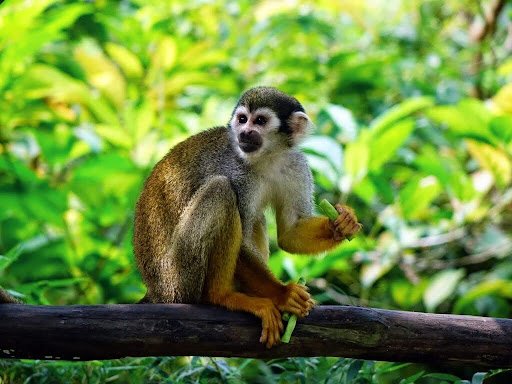Introduction
Owning a monkey is a dream for many animal enthusiasts, but it’s a responsibility that demands significant forethought. Monkeys are intelligent, playful, and undeniably unique, making them a captivating choice for exotic pet lovers. However, understanding the monkey ownership costs and price factors involved is essential for anyone considering taking on this commitment. From the initial purchase to hidden expenses and ethical concerns, being informed is key to making a sound decision.
The Growing Popularity of Monkeys as Pets
Exotic animals have become increasingly popular in recent years, and monkeys are often at the top of the list. Their human-like traits and engaging personalities make them appealing companions. Social media has only amplified this trend, with videos of pet monkeys showcasing their adorable antics. However, popularity doesn’t negate the complexities of owning a monkey, especially when considering the cost of owning a monkey and the responsibilities involved.
Initial Costs of Buying a Pet Monkey
Monkey Price Range
The price of a monkey varies significantly depending on the species. the pet monkey price guide is as follows:
- Capuchins: $5,000–$10,000
- Macaques: $3,500–$7,000
- Tamarins: $2,000–$5,000
Exotic Monkey Prices
Rare species such as spider monkeys and mandrills command even higher prices, often exceeding $15,000. These high exotic monkey prices reflect their rarity, care requirements, and legal restrictions in some areas.
Factors Influencing Monkey Prices
Species and Rarity
The rarity of a monkey species heavily impacts its price. Common species like tamarins are more affordable, whereas rare ones like mandrills can cost a fortune.
Age and Health
Young, healthy monkeys typically cost more due to their adaptability and potential for bonding and training. Older or ailing monkeys may come with a lower price tag but require significant veterinary care.
Breeder Reputation
Purchasing from reputable breeders ensures you’re getting a healthy, ethically raised monkey, but it often comes at a premium price. Breeders with solid reputations provide proper documentation and ensure humane practices, making them worth the investment.
Hidden Costs of Monkey Ownership

Food and Nutrition
A balanced diet is critical for monkeys. Fresh fruits, vegetables, proteins, and specialized monkey chow can cost $50–$100 per month or more, depending on the monkey’s dietary needs.
Veterinary Care
Finding a vet with primate expertise is a challenge and an expensive one. Annual checkups, vaccinations, and unexpected health issues can easily amount to thousands of dollars per year.
Enclosures and Enrichment
Monkeys need spacious enclosures equipped with climbing structures, toys, and enrichment activities to stay mentally and physically healthy. Setting up a suitable habitat can cost between $1,000 and $5,000, with ongoing expenses for updates and replacements.
Licensing and Permits
In many regions, owning a monkey requires obtaining permits. These can range from $100 to $1,000 annually and are necessary to comply with local laws and regulations.
You can also read about
Monkey Price Guide: What You Need to Know Before Buying
Ethical Considerations for Pet Monkeys
Welfare Concerns
Monkeys are social animals that thrive in groups. Living in isolation in a human household can lead to behavioral issues and emotional stress. Providing an environment that mimics their natural habitat is essential but challenging.
Legal and Moral Issues
Strict laws govern monkey ownership in many areas, reflecting concerns about their welfare. Ethical debates focus on whether keeping such intelligent and complex creatures as pets is humane. Critics argue that domestication fails to meet their intricate social and emotional needs.
Long-Term Costs of Owning a Monkey
Lifespan and Commitment
Monkeys live 20–40 years, making them a lifelong responsibility. This longevity means decades of ongoing expenses for food, veterinary care, and other necessities. Prospective owners should carefully assess their ability to commit to such an extended period.
Behavioral Challenges
Monkeys are known for their mischievous behavior and occasional aggression. Training to manage such issues often requires professional help, which adds to the overall costs. Additionally, their unpredictable nature can lead to property damage and unexpected medical bills.
Monkey Species Price Comparison
Commonly Kept Species
- Capuchins: $5,000–$10,000
- Macaques: $3,500–$7,000
- Tamarins: $2,000–$5,000
Rare and Exotic Species
- Spider Monkeys: $10,000–$15,000
- Mandrills: $15,000+
Additional Costs to Consider
Travel and Transportation
Transporting a monkey, especially across borders, can be costly. Airlines and specialized pet transport services often charge between $500 and $2,000, depending on the distance and requirements.
Insurance and Liability
Some owners opt for liability insurance to cover potential damages or injuries caused by their pet. This recurring expense further increases the total monkey ownership costs.
Is Owning a Monkey Right for You?
Before committing to owning a monkey, ask yourself: Can you handle the financial, emotional, and time commitments? Monkeys are not just pets; they require a lifestyle adjustment. Thorough research and consultation with experts are vital steps before making this decision.
Conclusion
Owning a monkey is a significant and demanding responsibility that extends far beyond the initial purchase price. From monkey species price comparison to hidden costs like veterinary care, enclosures, and ethical concerns, the financial and emotional investments are substantial. While these animals can offer unique companionship, they come with complexities that require careful consideration. For those unprepared to meet the demands of monkey ownership, exploring alternative pets or ways to engage with primates ethically might be a better choice.
FAQs
What is the monkey price range for pet monkeys?
The cost of a monkey varies from $2,000 to over $15,000, depending on the species and other factors.
What are the hidden costs of monkey ownership?
Hidden costs include food, veterinary care, enclosures, permits, and insurance, which can add thousands of dollars annually.
Are there ethical concerns in owning a monkey?
Yes, owning a monkey raises welfare and ethical concerns, as these social animals have complex needs that are difficult to meet in captivity.




